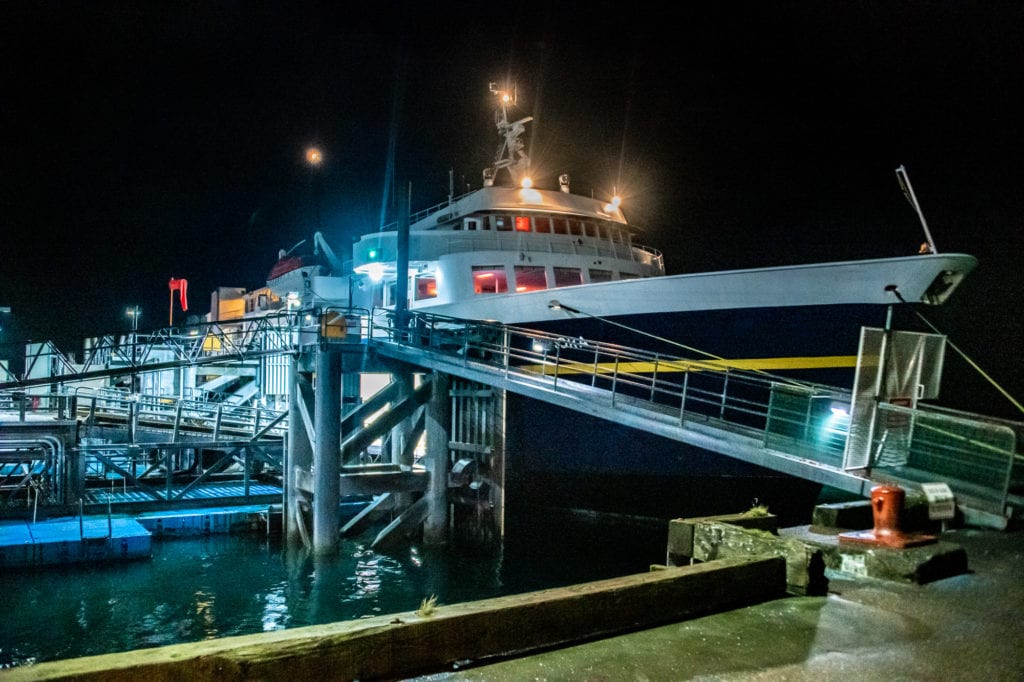
By Tom Barrett
For The Cordova Times
As the governor’s Alaska Marine Highway Reshaping Work Group gets underway, our directive is clear: chart a sustainable, long-term path that delivers the transportation services our coastal communities need with the reliability, safety and efficiency that all Alaskans deserve.
As group chair, I am fortunate to share this endeavor with experienced and talented individuals representing a wide swathe of Alaskan perspectives. While I won’t speak for my teammates, I know that each is committed to delivering a work product that positions the system for future success. We want a marine highway system that all Alaskans can take pride in as a model of service delivery and efficiency.
We know the system is critical to Alaska’s economic and social well-being. AMHS delivers services across 3,500 miles — a distance 200 miles further than a trip from Miami to Seattle. Ferries are used by Alaskans and Alaskan businesses throughout the Panhandle across Prince William Sound, to Kodiak and out the Aleutian chain. Even those moving to or from Anchorage and the Interior sometimes rely on ferry passage to transport belongings, vehicles and pets from the mainland to Alaska.
As we begin our work, I want to be transparent about our approach. No outcome has been pre-judged. We will carefully review the extensive analysis that was recently completed along with previous research. Our goal is to thoroughly understand asset condition, maintenance, operations, the economics of the present system and the needs of our communities. We will then fashion holistic and practical long-term transportation options for the governor and legislature.
Every meeting will be open to the public. We expect to hold in-person sessions across coastal Alaska, consult with Alaska Native tribes and build on the knowledge of local leaders. Please understand that in-person gatherings may be tempered a bit in the near term as the state manages the COVID-19 risk.
I’d like to leave you with a few personal perspectives. First, this problem didn’t develop overnight. We are starting where we are; there is little gained by criticizing past decisions, which may well have been the best available choice at some earlier point in time.
Second, I have great respect for the people on the front line of any operational organization – in this case skilled mariners, mechanics and others who operate and maintain our ferries and shore facilities. We will solicit their expertise and consider all solutions.
We will also focus on governance and financial issues, but as the expression goes, “No easy money comes from the sea.” Alaskan waters can be very tough.
Third, changes — even fundamental ones — are likely needed for improvement to occur. We can’t be afraid of them. In my roles overseeing federal transportation agencies, leading the Coast Guard in Alaska and more recently the Trans-Alaska Pipeline System, one learns that status-quo thinking won’t get you where you need to go in the long term. Perhaps counterintuitively, a prudent focus on efficiency often enables better performance and more reliable service.
I know poor strategy often gets shelved; long-term plans that lack agility get jettisoned to address short-term needs. I know broad support will be needed for Alaska to maintain marine highway services we can all be proud of. I appreciate the governor’s trust and I applaud every member of our work group for their commitment to moving Alaska forward.
We will listen, we will work diligently and transparently, and I am confident we can deliver a sustainable path forward that works for Alaska.
Tom Barrett is chairman of the Alaska Marine Highway Reshaping Work Group. He previously led the Coast Guard’s Alaskan operations and retired as the longest-serving president of the Alyeska Pipeline Service Company.





